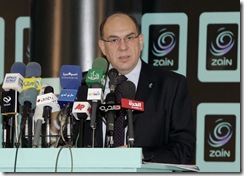MTN Group announced that its subscriber base increased to 80.73 million as at September 30, 2008 across the group’s 21 operations in Africa and the Middle East. This represented a 9 per cent increase from 74 million subscribers recorded at the end of June 2008.
MTN closes in on 100 million mobile subscribers, the first African operator to reach that milestone
MTN’s South and East Africa (SEA) region contributed 28 per cent of the group’s total subscribers while West and Central Africa (WECA) and the Middle East and North Africa (MENA) regions contributed 44 per cent and 28 per cent respectively.
The South African operation contributes 72 per cent to the SEA region’s subscribers, with its subscribers increasing 4 per cent to 16.17 million for the quarter to end-September. Prepaid growth was underpinned by the value proposition, MTN Zone, which was enhanced to include off net calls and which continues to be a success.
Meanwhile Uganda increased its subscriber base by 16 per cent following the introduction of MTN Zone in late July, with approximately two million subscribers on this price plan at the end of September.
MTN Nigeria, which contributes 56 per cent to the WECA region’s subscriber base, recorded a 9 per cent increase in subscriber base to 20.17 million. Aggressive network rollout in Nigeria continued in Q3 with 524 base stations rolled out during the quarter. Quality of service improved significantly resulting in the advertising ban being lifted by the Regulator.
In the WECA region, MTN Zone was introduced in Ghana, Cameroon and Benin during the period under review. Ghana rolled out 377 base stations and increased its subscriber base by 14 per cent to 5.7 million.
The MENA region recorded a 10 per cent increase in subscribers for the quarter. This was mainly due to continued growth from the Iran operation, which increased its subscribers by 13 per cent to 13.14 million. Following the substantial disconnections in Q2, subscriber growth in Sudan started to show an improvement with a 7 per cent increase in its subscribers to 2.26 million.
“We are satisfied with the subscriber growth across our operations. As competition increases, MTN continues to explore growth opportunities," commented Phuthuma Nhleko, MTN Group president and chief executive officer.








